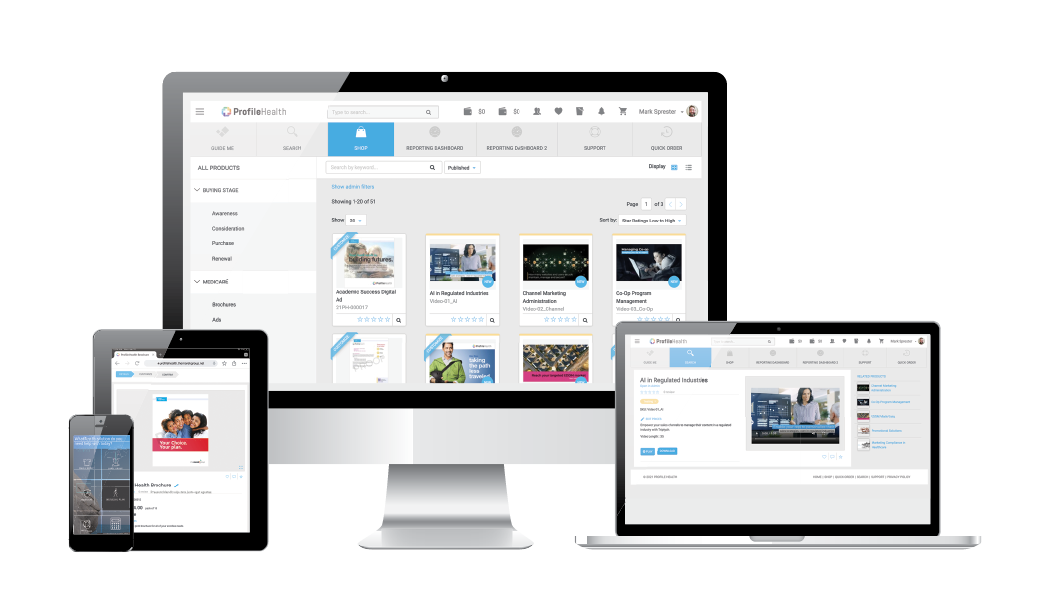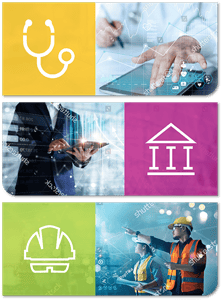4 min read
B2B Omnichannel Marketing: The Most Predicted B2B Trend for 2021
 Cameron Schulz
:
February 15, 2021 at 9:54 AM
Cameron Schulz
:
February 15, 2021 at 9:54 AM


It may feel like December 77th, 2020, but the new year really is here, and 2021 has a lot of work to do to meet the expectations that emerged from the pandemonium that preceded it. B2B consumers have weathered a storm of experimental changes, technical difficulties, and a multitude of other tumultuous adjustments that businesses had to make as a result of the pandemic. For the most part, they were more than understanding, but this year, they’re looking for ease and consistency.
Que Omnichannel Marketing. Not an altogether new concept, yet not an entirely accepted or adopted one either—Omnichannel Marketing is predicted by experts like Gartner, McKinsey & Company, and Salesforce to be key to any successful marketing strategy for 2021. Why? Let’s take a look.
B2B Omnichannel Marketing Predictions from the Experts:
Gartner – Gartner Marketing Predictions for 2021 and Beyond: Marketing Hits Reset
As the experts at Gartner looked forward to 2021 and the years following, their number one prediction was that hybrid experiences would become a top priority for marketing leaders. Whether it’s hybrid or omnichannel, the goal is the same: to produce an experience with a consumer-driven balance between digital and analogue channels to deliver better buying journeys. However, omnichannel incorporates the importance of a seamless connection, which is key to delivering an enjoyable experience.
Two well-observed outcomes produced by the pandemic substantiate this prediction—a permanent increase in digital experiences and the inevitable digital fatigue that results in the desire for real, physical interactions. So, although the pandemic has demonstrated that it is possible to continue business without the human touches of traditional marketing, it has simultaneously revealed the importance of such human touches.
Implementing a hybrid experience without an omnichannel marketing approach would likely lead to disconnected and inconsistent interactions—both equally frustrating for consumers. The seamlessness of omnichannel will be essential to restoring balance to the buying journey and providing the consistency and ease that consumers are longing for.
McKinsey & Company – How B2B sales have changed during COVID-19
McKinsey & Company summed things up a little differently, using an infographic packed with statistical information from their own research. In ‘The next-normal sales model’ section, they acknowledge that COVID-19 “has accelerated previous trends” including omnichannel selling—and subsequently, marketing.
Their rationale remained within the digital interactions that consumers pivot between prior to making their decision. According to their research, companies with “outstanding digital experiences” are two times more likely to be selected for final purchase. The final segment regarding adaptation includes several suggestions for achieving an exceptional digital experience, including “Optimize your e-commerce channel to give buyers ease and conveniences, and make sure all your sales channels are integrated and incentivized to collaborate with each other.” Essentially, what they're suggesting is an omnichannel approach.
Omnichannel isn’t just about fluently connecting the in-person to the digital, it’s also about creating smooth transitions between all digital channels. Implementing an omnichannel strategy for digital will help you complete the links between live chat, mobile applications, webpages, and all of your other digital channels to allow consumers to flow effortlessly from one interaction to the next creating a stream of activity that has the potential to flow through to a final purchase—which, according to the same study that informed the McKinsey infographic, is highly likely as 15% of those surveyed were willing to make a purchase of over 1 million dollars and 32% were willing to make a purchase of 50 to 500 thousand through end-to end digital self-service and remote human interactions.
Salesforce – State of Marketing 6th Ed. & State of the Connected Customer 4th Ed.
Although collected at the onset of the pandemic, much of the information shared in the State of Marketing 6th Edition would later be substantiated by data shared in the State of the Connected Customer 4th Edition which was gathered mid-pandemic throughout July and August.
This is especially true when it comes to their discussion of omnichannel marketing and the key role it is anticipated to continue playing throughout 2021. In the State of Marketing report Salesforce leaders state,
“Omni-channel marketing is not new, but it’s never been more relevant. Today’s customers - whether buying for themselves or on behalf of their companies - hop from channel to channel throughout their days.”
This was further proved when the State of the Connected Customer revealed that customers turn to an average of nine channels throughout the entirety of their buying journey. Which channels consumers are choosing to use has change, undoubtedly, but customer expectations regarding how they are engaged has not. Omnichannel remains relevant because consumers still desire to ‘hop’ from one channel to the next without interruption or losing progress. As it’s stated in State of Marketing,
“Customers expect companies to engage with them across channels in a dynamic manner – in which brand message and content on one channel are tailored based on their actions on another channel.”
Or as it’s stated in the State of the Connected Customer,
“In a world in which 66% of customers feel treated like a number, providing options and continuity between different channels is a differentiator.”
Omnichannel marketing won’t just improve your customer experience, it will set you apart in their routine search processes. With more and more digital interactions, it will be critical to ensure that your digital channels and human touch points flow effortlessly from one to another.

Omnichannel B2B Marketing – The Time to Transform is Now
Omnichannel may seem like an outdated ‘buzzword’ but the truth is, there is substantial evidence that suggests that it has only grown in importance since the changes that have occurred over the last year. After spending hours on the computer at work, entering and re-entering the same information over and over is the last thing your consumers want to do in their free time. Furthermore, it may be a small number, but there are consumers that will expect human touchpoints like in-person meetings to be re-introduced to your buying cycle when it’s possible—and they’ll expect the same seamless transition from human to digital as they do from digital to digital. Adopting the omnichannel mindset can’t wait any longer, the time to transform your sales and marketing practices and improve your customer and prospect experience now.

The Benefits of Omnichannel Marketing in 2021:
Much like the omnichannel strategy itself forms a series of chain reactions—moving consumers from one channel to the next based on their previous...





